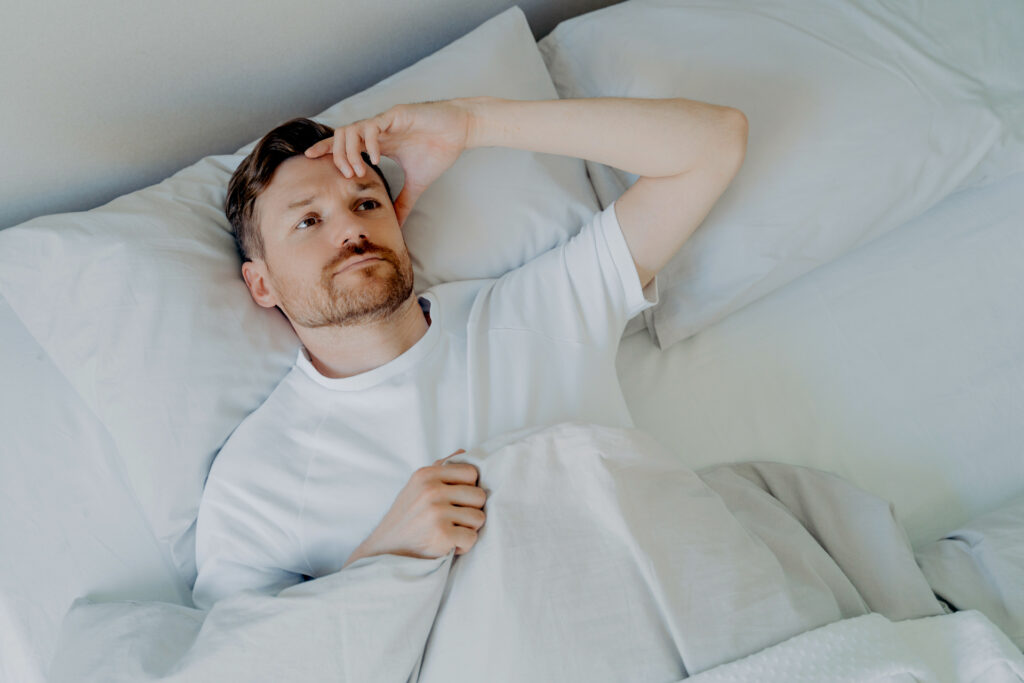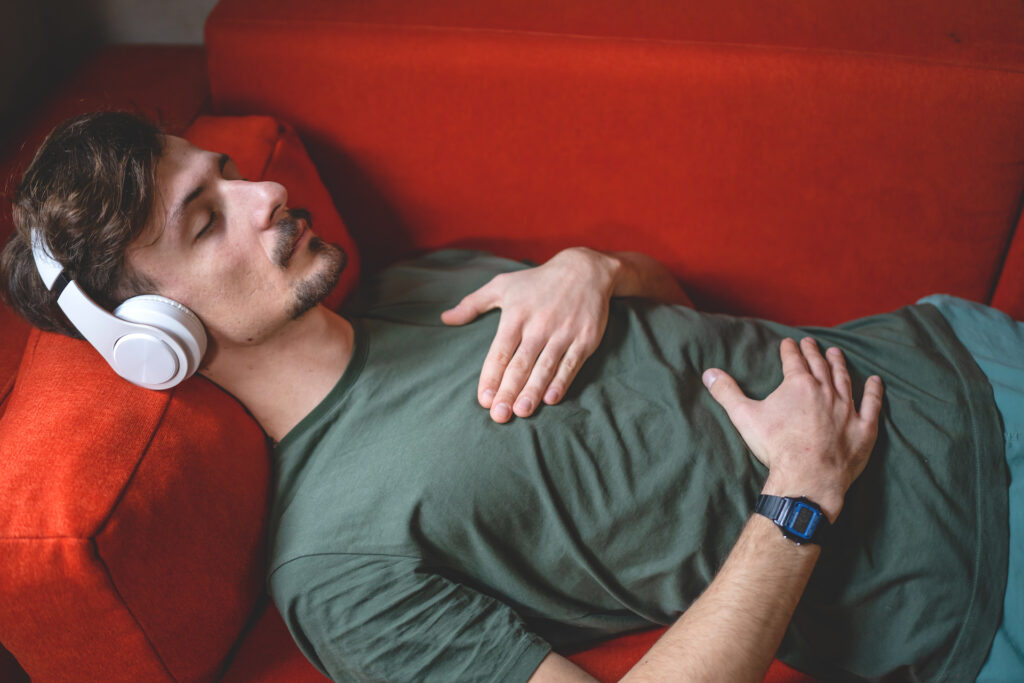At times in our lives, we might find ourselves tossing and turning when in fact we should be sleeping.
In bed, our mind can feel like a race car fueled by worry and fear that can intensify to the point of not being able to sleep, or even turn into a full-blown panic attack! But given the importance of sleep to mental health, recovery from addiction, and general well-being, it warrants our attention to address such a thing, especially if it’s happening regularly.
The comforting news is if you’re experiencing night-time panic, you’re not alone. Night-time panic is a common phenomenon affecting many individuals, especially those who already struggle with mental health or addiction.
In this blog post, we’ll look at night-time stress, explore its connection to mental health, and ultimately embrace good sleep as a driver of healing and recovery.
Understanding Night-Time Panic
“Why does this happen to me?”
At night, our minds are not occupied or distracted in the same way they are during the day. The quiet solitude of the night can magnify our unresolved stress and worries.
According to an article from the Cleveland Clinic, panic attacks can happen day or night, with seemingly no trigger. They stem primarily from how your brain and nervous system process fear and anxiety.
By the numbers, most panic attacks happen during the day. Having panic attacks during the day is also a risk factor (though not a prerequisite) for having them at night. Other risk factors include anger or hostility issues, anxiety disorder, depression, insomnia, sleep apnea, obsessive-compulsive disorder, and alcohol/substance use disorders.
Night-time panic often intertwines with mental health struggles, creating a loop that’s challenging to break. Conditions like anxiety disorders, depression, and post-traumatic stress disorder (PTSD) can significantly contribute to the intensity and frequency of nocturnal panic episodes.

Treatment Approaches: Tucking Into Bed With Peace Of Mind
Luckily, there are many tools and approaches for dealing with night-time panic and panic attacks/anxiety in general. At our centres, we make use of a wide range of approaches to supporting clients with sleep issues such as night-time panic.
Simple mindfulness and relaxation practices like deep breathing or progressive muscle relaxation, can be powerful tools in the battle against night-time panic. Through our programs, many clients have learned how to make use of mindfulness meditation and relaxation exercises as part of their bedtime routines, helping to calm their minds and reduce anxiety.
Our world-class team of medical professionals can also support clients with therapeutic interventions, including psychotherapies such as Cognitive Behavioral Therapy, or other therapies that can be applied with a sleep treatment focus.
Understanding the link between mental health and night-time panic is crucial for effective treatment. At our centres, we believe that dealing with something like night-time panic is not just about managing the symptoms; it’s about addressing the root causes and creating a holistic approach that considers the multiple aspects of an individual’s life and health.
In some instances, medications can also be prescribed to alleviate the symptoms of anxiety or depression that contribute to night-time panic. Whatever the approach, we are always curious about treating the root of what is happening, not just masking the symptoms.

The Importance Of A Good Night’s Sleep
A good night’s sleep might be just the beginning of a brighter tomorrow.
Sleep is more than just a nightly ritual; it’s essential to well-being and recovery. In fact, getting enough sleep is one of our top self-care tips for families that are supporting a loved one with addiction.
Prioritizing healthy sleep can foster resilience, improve mood, and contribute to an overall sense of well-being. Simple changes, such as maintaining a consistent sleep schedule, creating a relaxing bedtime routine, and optimizing your environment for sleep can all make a difference.
In our experience, navigating an issue like night-time panic requires a multifaceted approach that acknowledges the relationship between mental health and sleep. At Sunshine Coast Health Centre and Georgia Strait Women’s Clinic, we take an approach that recognizes the physical, psychological, social and spiritual aspects of individuals in treatment and recovery.
If you or someone you know is experiencing night-time panic, struggling with substance use, or needing support with mental health, help is available. Please give us a call today.



